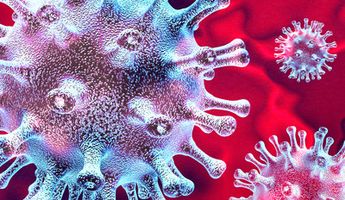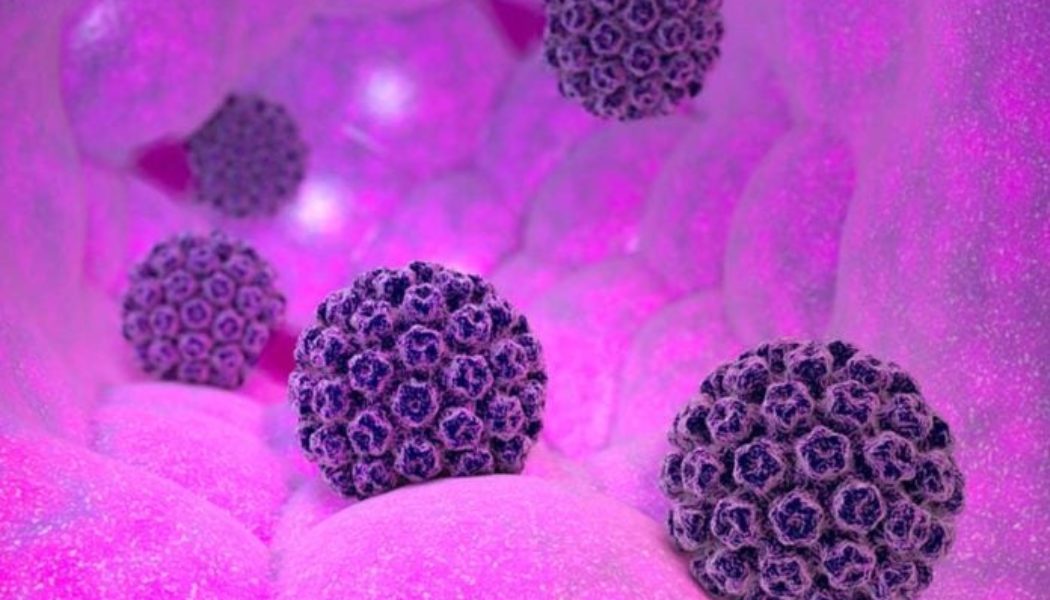Coronavirus Treatment in Paris
Search and Compare the Best Clinics and Doctors at the Lowest Prices for Coronavirus Treatment in Paris

Find the best clinics for Coronavirus Treatment in Paris
No pricing info available
Malaysia offers the best prices Worldwide
Price: $ 64
From 161 verified reviews
latifa Rabhi, 06 September 2020
Very fast support, with highly qualified and human staff.The rooms are beautiful and very quiet.Calm and gentleness in this hospital, I highly recommend.
WHY US?
At Medijump, we're making medical easy. You can search, compare, discuss, and book your medical all in one place. We open the door to the best medical providers worldwide, saving you time and energy along the way, and it's all for FREE, no hidden fees, and no price markups guaranteed. So what are you waiting for?

Free

Best Price

Widest Selection

Risk-Free
What you need to know about Coronavirus Treatment in Paris

Late 2019, authorities identified a new coronavirus outbreak in China that has now reached other countries. The virus is known as severe acute respiratory syndrome coronavirus 2 (SARS-CoV-2), while the disease is called coronavirus disease 2019 (COVID-19) and also known as Wu Han Virus, after the city, it is believed to have originated from. If you have the symptoms of COVID-2019 or you have possibly been exposed to the virus, contact your doctor immediately to get proper help and advice and seek Coronavirus Testing.
What does the Procedure Involve?
There are currently no antiviral medications recommended to treat COVID-19. Treatment is mostly aimed at relieving symptoms, which may include cough syrup or medication, pain relievers, rest, and fluid intake. If your doctor thinks that you can be treated at home, you will be given special instructions, such as isolating yourself as much as possible from anyone (including family) and staying at home for a period of time. In severe cases, you may need to be treated in the hospital and stay in isolation away from other people until you have recovered.
How Long Should I Stay in Paris?
The length of stay in the hospital and in Paris can vary. If you are in Hospital, at Home, on Holiday you will be quarantined and you will continue to undergo throat swabs for the virus for 5 to 14 days. This is to determine if you are still contagious and will mean you will need to stay in the country and avoid being in close contact with anyone for at least two weeks while you recover.
What's the Recovery Time?
Recovery time of COVID-19 varies, depends on the severity of the disease, your overall health, and your age. According to Harvard Health, people who have mild symptoms may recover within a few days, while those with pneumonia will need more time (ranging from days to weeks). In severe, life-threatening cases, it may take months for the person to recover.
What About Aftercare?
Since it is common for viruses to exist in low levels within the body even after recovery, you will still need to be careful, particularly in your household setting. Do not share drinks or food and ensure that you wash your hands frequently. Always take the necessary precautions to avoid spreading the disease while at home or anywhere else. Bear in mind that recovery does not necessarily make you immune to the disease.
What's the Success Rate?
Little is known about the virus. Investigations and research about the virus are still ongoing, so the exact number of success rates and mortality rates are likely to change further as more cases are confirmed. Several groups of people have a high risk of developing complications due to the disease, including very young children, people aged 65 or older, and women who are pregnant. Those with any pre-existing health conditions are also at high risk.
Are there Alternatives to Coronavirus Treatment?
There are currently no alternatives to coronavirus treatment. There is also no vaccine available to prevent infection. However, prevention is best. Always follow the standard precautions, such as washing your hands with soap and water frequently.
What Should You Expect Before and After the Procedure
Before treatment, you may experience symptoms of the coronavirus and you may have spread it to other people. Theirs is also a small chance that the disease may become life-threatening. After Isolation and rest, any symptoms should be relieved and your chance of spreading the virus to other people will be reduced.
Whilst the information presented here has been accurately sourced and verified by a medical professional for its accuracy, it is still advised to consult with your doctor before pursuing a medical treatment at one of the listed medical providers
No Time?
Tell us what you're looking for and we'll reachout to the top clinics all at once
Enquire Now

Popular Procedures in Paris
Prices Start From $22,731

Recommended Medical Centers in Paris for Coronavirus Treatment

- Interpreter services
- Translation service
- Religious facilities
- Medical records transfer
- Medical travel insurance
- Health insurance coordination
- TV in the room
- Safe in the room
- Phone in the room
- Private rooms for patients available

- Interpreter services
- Translation service
- Religious facilities
- Medical records transfer
- Medical travel insurance
- Health insurance coordination
- TV in the room
- Safe in the room
- Phone in the room
- Private rooms for patients available

- Interpreter services
- Translation service
- Religious facilities
- Medical records transfer
- Medical travel insurance
- Health insurance coordination
- TV in the room
- Safe in the room
- Phone in the room
- Private rooms for patients available

- Interpreter services
- Translation service
- Religious facilities
- Medical records transfer
- Medical travel insurance
- Health insurance coordination
- TV in the room
- Safe in the room
- Phone in the room
- Private rooms for patients available

- Interpreter services
- Translation service
- Religious facilities
- Medical records transfer
- Medical travel insurance
- Health insurance coordination
- TV in the room
- Safe in the room
- Phone in the room
- Private rooms for patients available

- Interpreter services
- Translation service
- Religious facilities
- Medical records transfer
- Medical travel insurance
- Health insurance coordination
- TV in the room
- Safe in the room
- Phone in the room
- Private rooms for patients available

- Interpreter services
- Translation service
- Religious facilities
- Medical records transfer
- Medical travel insurance
- Health insurance coordination
- TV in the room
- Safe in the room
- Phone in the room
- Private rooms for patients available

- Interpreter services
- Translation service
- Religious facilities
- Medical records transfer
- Medical travel insurance
- Health insurance coordination
- TV in the room
- Safe in the room
- Phone in the room
- Private rooms for patients available

- Interpreter services
- Translation service
- Religious facilities
- Medical records transfer
- Medical travel insurance
- Health insurance coordination
- TV in the room
- Safe in the room
- Phone in the room
- Private rooms for patients available

- Interpreter services
- Translation service
- Religious facilities
- Medical records transfer
- Medical travel insurance
- Health insurance coordination
- TV in the room
- Safe in the room
- Phone in the room
- Private rooms for patients available
Coronavirus Treatment in and around Paris
About Paris
Paris is the capital and most populous city of France and it is the second-most visited country in the world and it is easy to see why. The city is considered as an international center of fashion, culture, art, and gastronomy. Its boulevards are lined with museums, world-famous monuments, classical bistros and boutiques, wine bars, and design shops that successfully captured the heart of its visitors. Besides a popular destination for leisure, Paris is also one of the leaders in Europe for medical tourism. Hospitals and clinics in the city are well-equipped and are able to perform all manner of medical treatments for international tourists. The doctors and nurses offer the highest level of care that is hard to rival.
Popular Parts of Paris
Paris is filled with iconic monuments with thousands of years of history. The most popular attraction of the city, as well as France’s symbol, is the Eiffel Tower. Visitors are allowed to climb as far as the 2nd floor via the south pillar’s 720 stairs or ride the elevator to the top. Besides the Eiffel Tower, visitors can stroll around the glamorous avenue des Champs-Élysées and admire Arc De Triomphe, admire the exquisite décor of Sainte-Chapelle, wander along the Seine, or try the city’s art nouveau cafes. Visiting Paris will never be complete without exploring its museums. One of the most popular is the Louvre, which is the biggest museum in the world with thousands of famous works, including the Mona Lisa.
Transport in Paris
Paris Charles de Gaulle Airport is the main international gateway to the city. It connects the city with almost every country around the world. Getting around Paris is easy as the city boasts one of the most efficient public transportation systems in the world. The metro subway system is extensive, generally safe, easy to use, and the trains usually arrive on time. The buses are spacious and affordable. There is also a commuter express (“RER”) train service that will take you to the city’s most important areas. Taxis are available and can be found easily.
Visas in Paris
France is a member of the Schengen Agreement, meaning citizens of 62 countries, including Singapore, the US, and Australia do not need a visa to enter and stay in the country for up to 90 days. Other nationals not listed in the visa-free entry should obtain and apply for a visa and always check at the nearest French embassy or consulate for the requirements.
Weather in Paris
Spring (March-May) has mild temperatures with a lot of rainy days. Summer starts in June bringing warm temperatures and sunny days. The average temperature during the summer is around 18°C. The temperature will slowly decrease in autumn (September – November), but the weather is still generally pleasant. Winter can be cold as the temperature drop to 4°C.
Additional Info
- Local Currency: The official currency is the euro. 1 EUR is approx. 1.12 USD.
- Money & Payments: ATMs are widely available. Debit and credit cards are accepted almost everywhere. Tipping can be mandatory in certain places.
- Local Language: French is the official language, but many people in tourist areas speak English.
- Local Culture and Religion: Paris has a diverse religion, with Christianity as the biggest. Other religions, such as Islam, Buddhism, and Judaism, are present.
- Public Holidays: Paris celebrates 11 official public holidays, including New Year’s Day, Easter Monday, Bastille Day, and Christmas Day.
Popular Searches
- Plastic Surgery in Thailand
- Dental Implants in Thailand
- Hair Transplant in Thailand
- Breast Augmentation Thailand
- Gastric Sleeve in Thailand
- Gender Reassignment Surgery in Thailand
- Laser Hair Removal in Bangkok
- Botox in Bangkok
- Dermatology in Bangkok
- Breast Augmentation in Bangkok
- Coolsculpting in Bangkok
- Veneers in Turkey
- Hair Transplant in Turkey
- Rhinoplasty in Turkey
- Stem Cell Therapy in Mexico
- Rhinoplasty in Mexico
- Liposuction in Mexico
- Coolsculpting in Tijuana
- Rhinoplasty in Korea
- Scar Removal in Korea
- Gastric Sleeve in Turkey
- Bone Marrow Transplant in India
- Invisalign in Malaysia
- Plastic Surgery in the Dominican Republic
- Tummy Tuck in the Dominican Republic
- Plastic and Cosmetic Surgery in Poland
- Rhinoplasty in Poland
- Hair Implant in Poland
- Dental Implants in Poland
- IVF in Turkey
